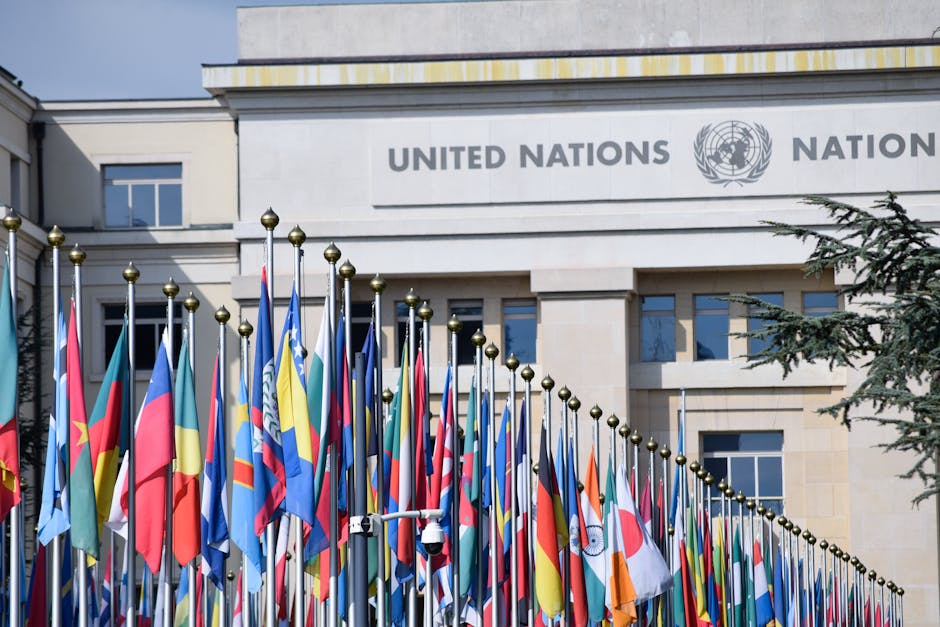The interconnected nature of our world presents a unique opportunity and a daunting challenge. Global issues, from climate change to pandemics and economic instability, transcend national borders. Can the collective efforts of nations, united in a spirit of cooperation, truly solve these complex problems? This article explores the potential and pitfalls of global cooperation in addressing the multifaceted crises facing humanity.
A complex web of interdependence binds nations together. Economic systems are intertwined, reliant on global supply chains and international trade. Environmental degradation knows no political boundaries, impacting all communities. Health crises, like the recent COVID-19 pandemic, demonstrate the need for rapid and coordinated responses across the globe. The sheer scale and complexity of these problems often exceed the capacity of individual nations to resolve them unilaterally. This underscores the necessity, and perhaps inevitability, of global cooperation.
Many proponents of global cooperation argue that pooling resources and expertise can produce more effective and sustainable solutions. For example, a coordinated global effort on climate change, involving reductions in greenhouse gas emissions and investment in renewable energy technologies, could prove more effective than individual nations acting in isolation. Sharing knowledge and best practices in healthcare could accelerate the development and dissemination of life-saving medicines and treatments. Furthermore, collaborative solutions often prove more resilient, better equipped to adapt to unexpected developments and unforeseen challenges.
A compelling argument for global cooperation lies in its potential to foster shared prosperity and security. Addressing poverty, promoting equitable development, and ensuring global food security are crucial goals requiring concerted international action. A global approach to economic development, promoting trade and investment, and encouraging financial stability, could foster a more prosperous and secure world. Similarly, international cooperation in law enforcement and intelligence gathering can be pivotal in combating transnational crime and terrorism. A unified front creates a more potent force against these formidable adversaries.
However, numerous obstacles impede the path to global cooperation. Differing national interests, political ideologies, and economic disparities can create significant friction. Some nations may prioritize their own economic gains over the collective good. Suspicion and mistrust, often rooted in historical conflicts or perceived injustices, can hinder the development of meaningful agreements. The inherent complexities of international negotiations, with numerous actors, agendas, and viewpoints, can lead to prolonged periods of discussion without concrete action.
Furthermore, effective global cooperation requires a robust institutional framework. International organizations such as the United Nations and specialized agencies play a crucial role in facilitating dialogue, coordinating responses, and promoting shared norms and standards. However, these organizations are not immune to internal conflicts or criticisms concerning their legitimacy, accountability, and efficiency. Even the most well-intentioned initiatives can falter if there is a lack of commitment from member states to implement agreed-upon plans. There is also a need for stronger mechanisms for ensuring compliance and holding nations accountable for their obligations.
The effectiveness of global cooperation can depend significantly on the nature of the issues at hand. Some challenges, such as climate change, require a high degree of international cooperation, while others, such as trade disputes, can be addressed through bilateral or regional agreements. The complexity of each issue will dictate the level of involvement and the form of cooperation required. Successful cooperation will demand adaptability and flexibility in navigating these differing needs.
Moreover, the role of powerful nations in shaping global cooperation is undeniable. Their financial resources, political influence, and technological capabilities can greatly impact the success of international initiatives. However, the undue influence of dominant actors can lead to inequitable outcomes and undermine the principles of fairness and equity. Building consensus and ensuring that all nations have a voice in shaping the global agenda is crucial for fostering genuine cooperation.
The history of global cooperation is replete with both successes and failures. Some notable achievements include the eradication of smallpox and the establishment of international treaties addressing ozone depletion. Conversely, progress on climate change has often been slow and uneven due to political gridlock and lack of commitment from certain nations. The path forward will require a critical examination of past successes and failures, identifying lessons learned and areas for improvement.
In conclusion, while global cooperation presents considerable potential to tackle the complex issues facing humanity, significant challenges remain. The path towards global unity requires a nuanced understanding of the complexities involved, a willingness to address differing interests, and a robust institutional framework that ensures accountability and effectiveness. A focus on fostering trust, promoting shared values, and ensuring that all nations have a voice in shaping the global agenda are paramount for moving towards a more cooperative and sustainable future. Ultimately, the efficacy of global cooperation depends on the willingness of nations to put aside their individual interests and embrace the collective responsibility for the challenges we face as a global community. This is not merely an option; it is a necessity for ensuring a safe, equitable, and prosperous world for generations to come.
